Join The Critical Thinking Alliance to fight misinformation and promote science and reason.
Receive free critical thinking resources, topical recommendations, and join a global community of people dedicated to fighting misinformation and promoting scientific understanding and rationality.
[JOIN]
We are evidence-based academics, authors, and non-profits providing practical ways to effectively work against misinformation and disinformation.
About us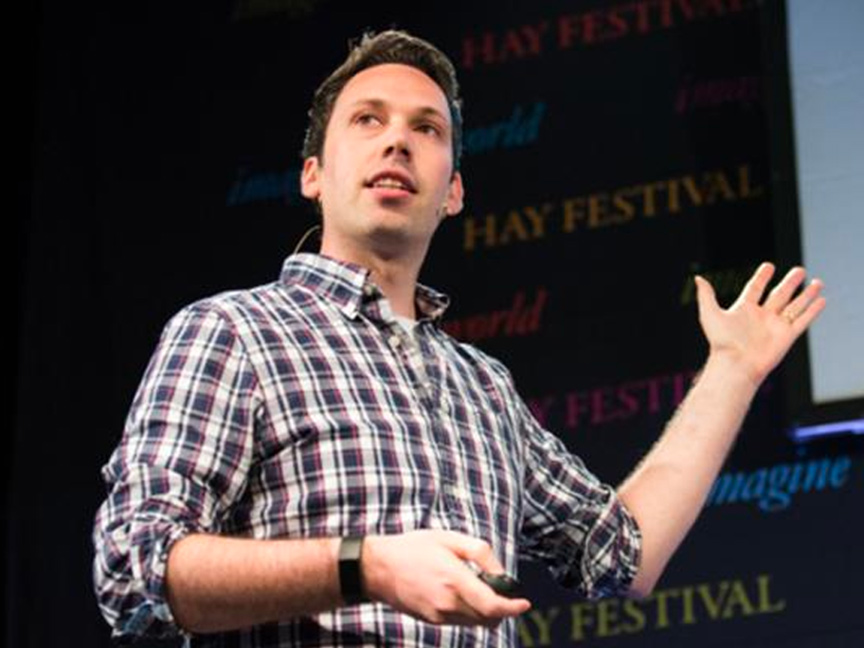
Prof. Sander van der Linden
Cambridge University, England
partner
Sander is a social psychologist, author, and professor of social psychology in society in the department of psychology at the University of Cambridge, England where he has directed the Cambridge Social Decision-Making Laboratory since 2016. His latest book is titled ‘Foolproof - Why we fall for misinformation and how to build immunity’
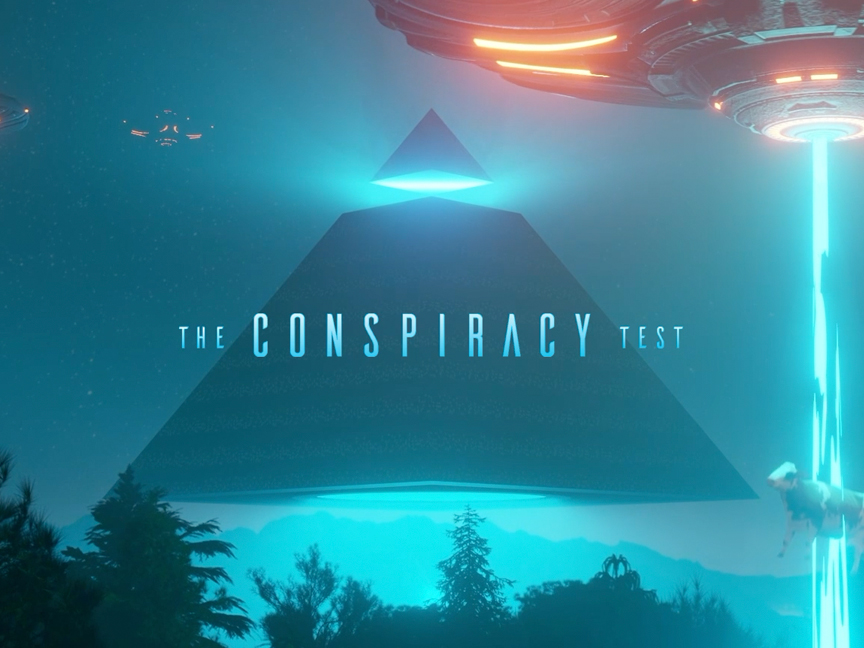
The Conspiracy Test
See if a conspiracy theory can survive your test
resource
This gamified interactive platform helps to increase healthy skepticism for conspiracy theories. Pick a conspiracy theory you think might be true and see if it can survive the test of your own critical thinking investigation. Then challenge your friends to see if they can beat your critical thinking score.
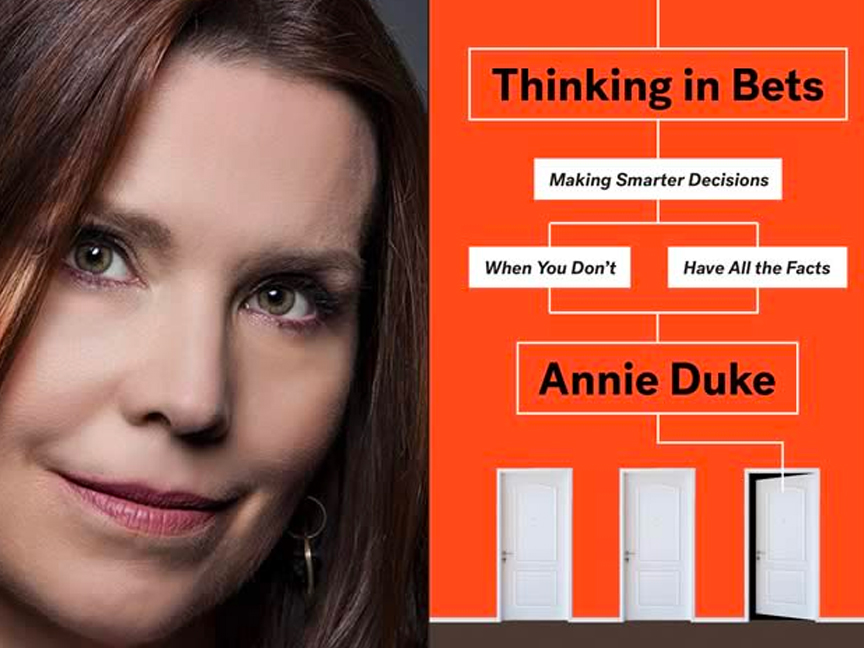
Thinking in Bets
By Dr. Annie Duke
book
Thinking in probabilities rather than binaries or absolutes is one of the most important precepts of decision-making. World Series Poker champion and scholar of behavioral science Dr. Annie Duke shows how we can make better decisions by separating the roles of luck and skill in determining outcomes.

Snake Oil Supplements Chart
From informationisbeautiful.net
resource
This excellent interactive infographic shows what evidence there is for the medical efficacy of different supplements, minerals, and vitamins. Sourcing from meta-analyses including Cochrane, it shows a helpful ‘worth it line’, and you can see where there’s very strong evidence for at the top, and strong disconfirming evidence at the bottom.
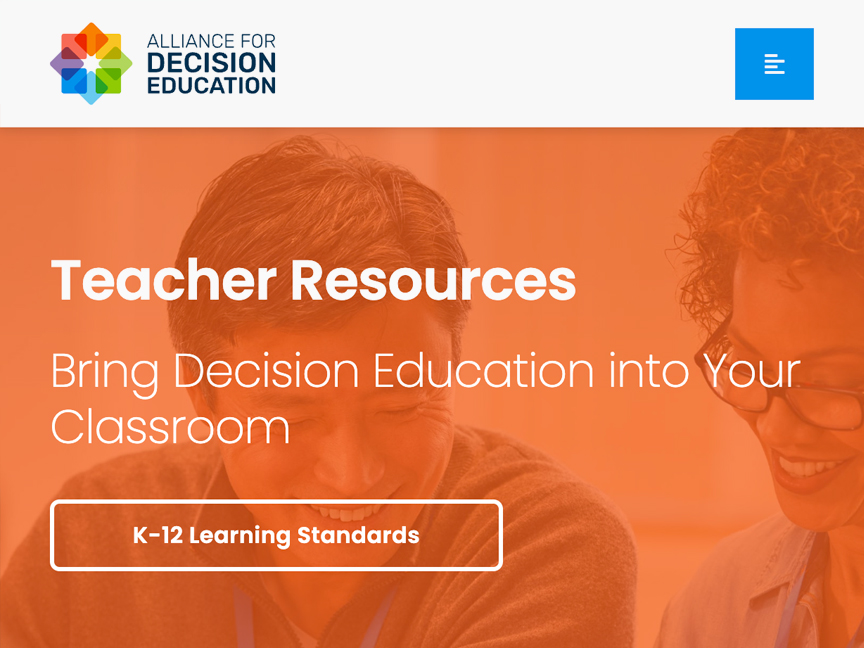
Decision Education Resources
From The Alliance for Decision Education
resource
Decision Education teaches skills and dispositions that overlap with critical thinking. Covering topics like cognitive biases and thinking probabilistically, these free downloadable materials provide practical ways for teachers to introduce useful Decision Education concepts to students.
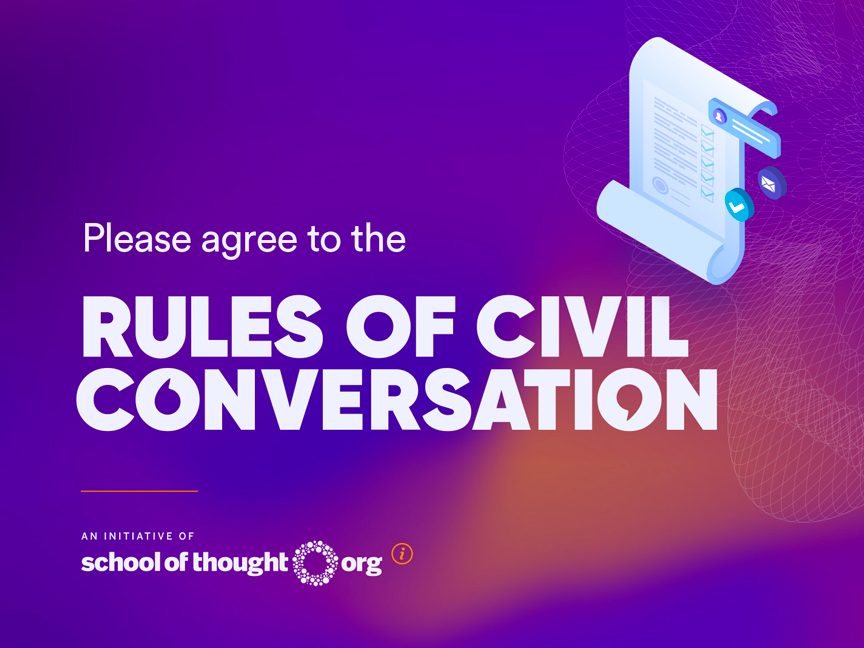
The Rules of Civil Conversation
An interactive way to engage in good faith
resource
Our world is becoming increasingly polarized, and it can often feel counterproductive to engage in conversation. But while conversations can drive us apart, they can also bring us closer together. By reframing our conversations as something we’re doing to reach a shared understanding, we have a much better chance of actually doing so.
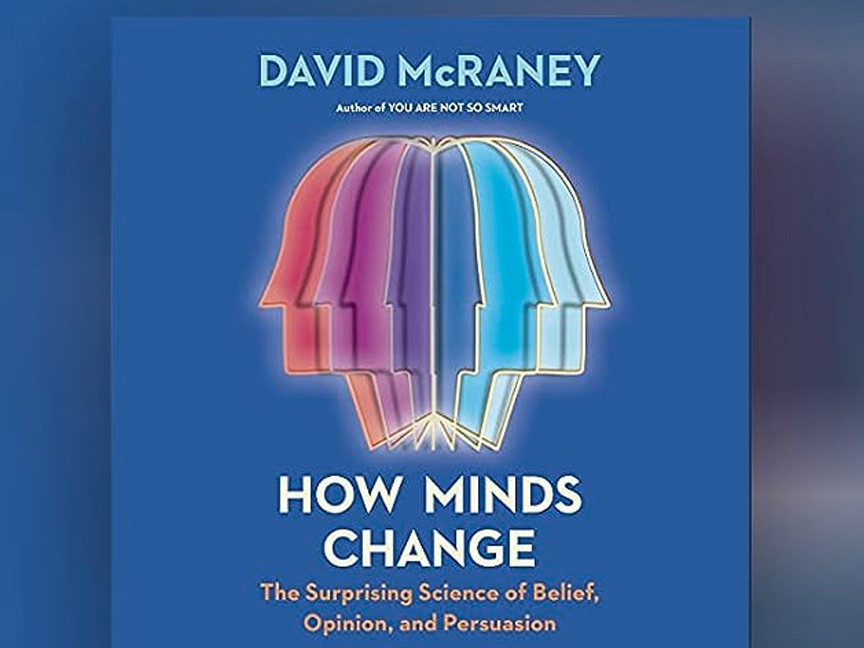
How Minds Change
By David McRaney
book
This book will change your mind about how minds change. It provides a fascinating and compelling report on the science of how and why people both do and don’t change their beliefs. It’s a surprisingly optimisitic treatise, showing how simple techniques can change what we presume to be intractable beliefs into open conversations.

The Bad News Game
Take on the role of an evil media mogul
resource
Bad News is an online game in which you must spread sensationalistic lies in order to get more followers. In addition to being rather a lot of fun, it has the proven benefit of helping to ‘inoculate’ you, and anyone else you share it with, from other forms of misinformation in both the real world, and the internet at large.
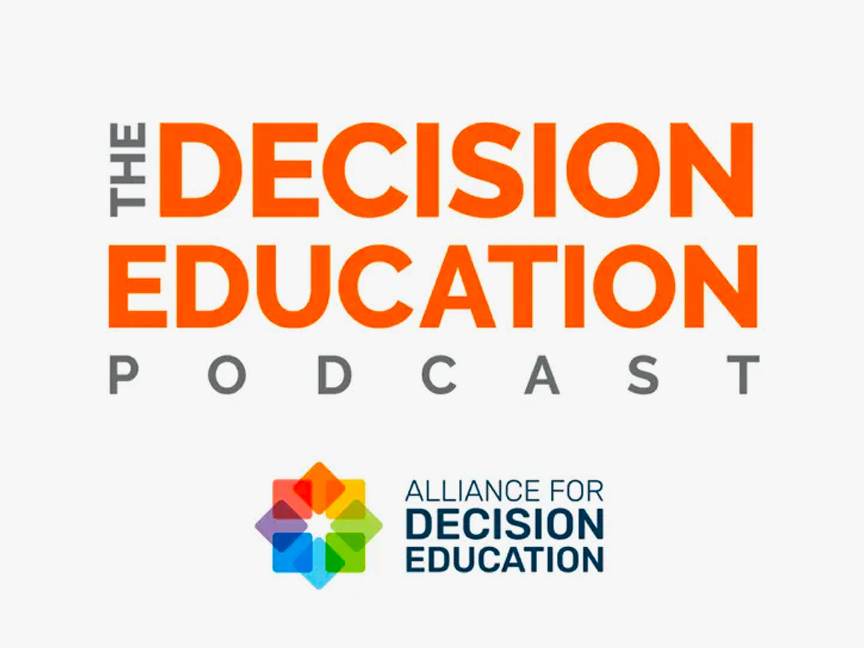
The Decision Education Podcast
From The Alliance for Decision Education
resource
Hear from experts from diverse backgrounds as they share insights on how asking the right questions, improving predictions, managing cognitive biases, and other strategies can make us better decision makers. Through real-life stories and cutting-edge research, gain practical strategies and transform your understanding of the role decisions play in our lives.

David McRaney
Author, Journalist, and podcast host
partner
David is the author of the internationally best-selling book You Are Not So Smart which explores the cognitive biases that affect us all, as well as the host of the popular podcast of the same name. He has been exploring the universe of beliefs, delusions, and persuasion for over a decade, and is a global authority on misinformation and critical thinking.
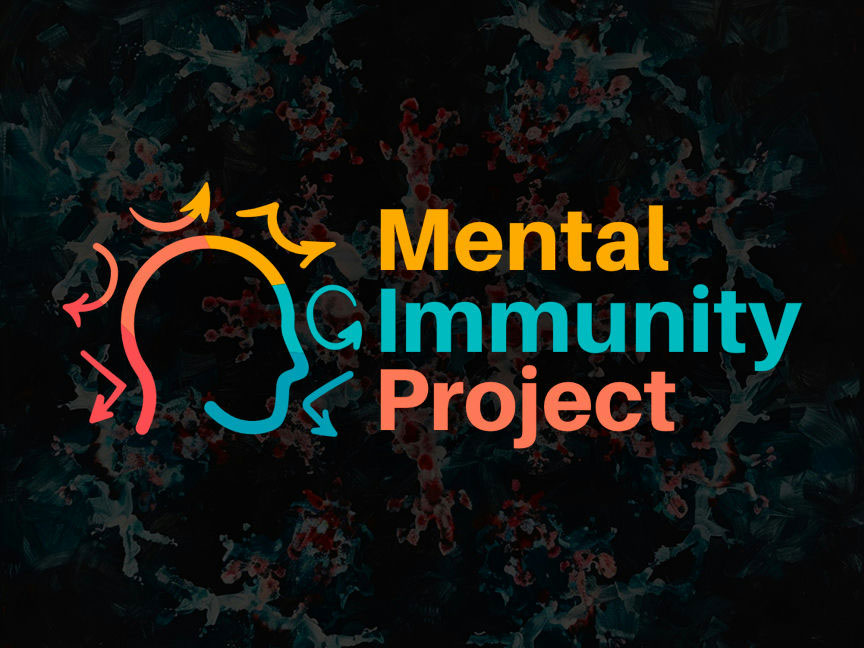
The Mental Immunity Project
How to foster immunity to misinformation
resource
The Mental Immunity Project (MIP) helps people develop cognitive antibodies to misinformation, online manipulation, extremism, conspiracy theories, and propaganda. MIP is a collaboration between CIRCE and Thinking Is Power.
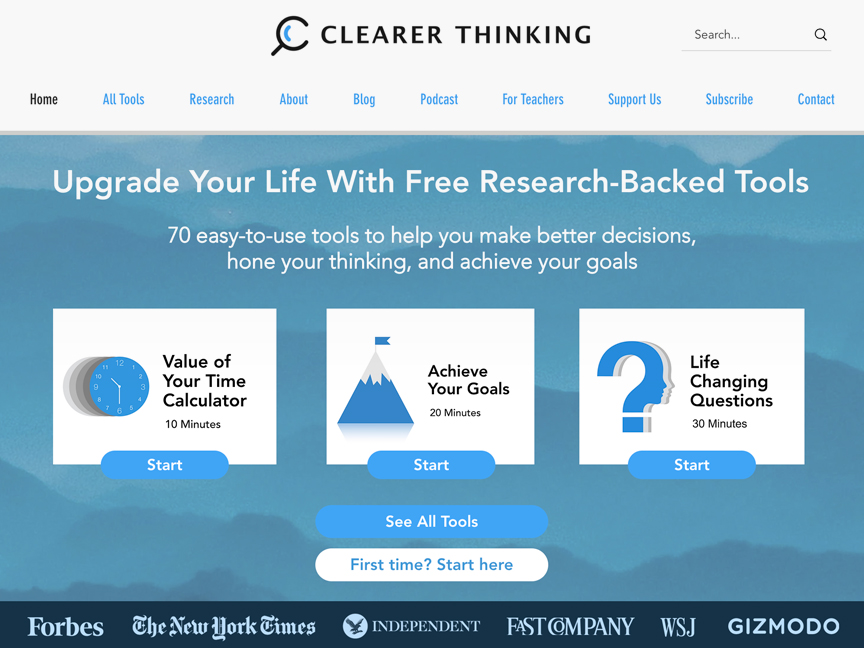
Clearer Thinking
From clearerthinking.org
resource
Taking an evidence-based approach and providing practical tools, quizzes, interactive courses and more, Clearer Thinking provides 70 easy-to-use tools to help you make better decisions, hone your thinking, and achieve your goals. Be sure to check out the podcast too, which is rich with curious conversations.

Superthinking
By Gabriel Weinberg & Lauren McCann
book
The world's greatest problem-solvers and decision-makers all rely on a set of frameworks and shortcuts that help them cut through complexity and separate good ideas from bad ones. They're called mental models, and you can find them in dense textbooks on psychology, physics, economics, and more. Or, you can just read this fun book.
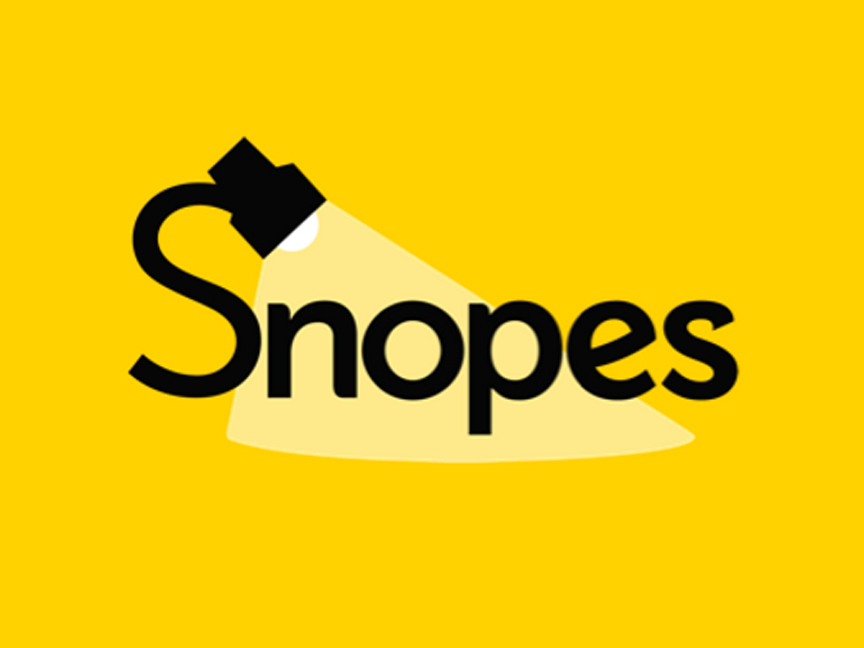
Snopes
The biggest and best fact-checking resource
partner
Snopes is the definitive internet reference source and fact-checking organization for researching urban legends, folklore, myths, rumors, and misinformation. They provide sources and citations to all of their analyses such that anyone and everyone is empowered to evaluate the latest and not-so-greatest rumors and untruths.

Foolproof
By Prof. Sander van der Linden
book
Sander van der Linden explains why our brains are so vulnerable to misinformation, how it spreads across social networks, and how we can cultivate immunity through the innovative science of "prebunking" – inoculating people against false information by preemptively exposing them to a weakened dose.
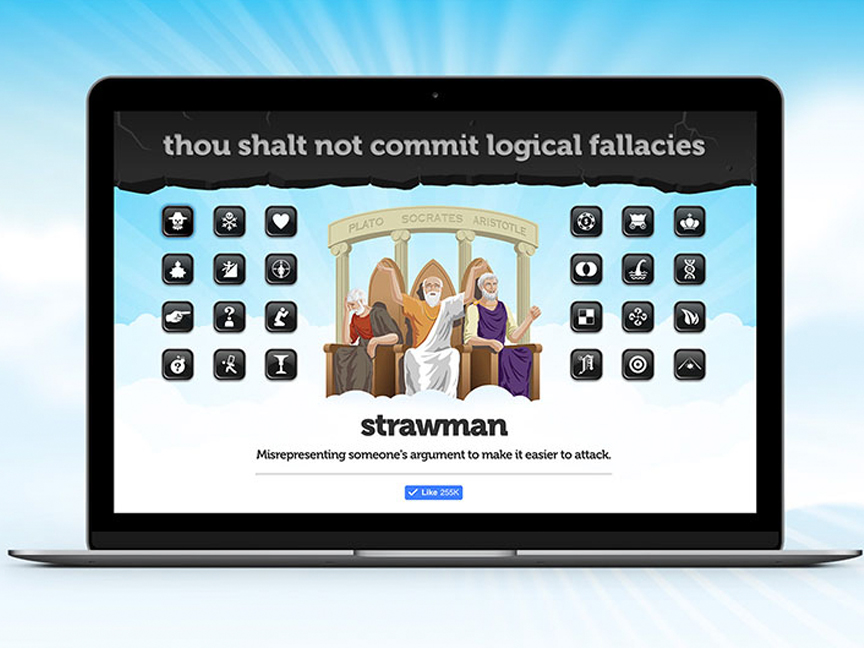
yourfallacy.is
Identify and tag logical mistakes
resource
Fallacies are flaws in logic. This website takes 24 of the most common fallacies and distils each one into a single simple sentence that anyone can understand, and provides fun examples. Each fallacy is shareable, for example if you see someone commiting a Strawman fallacy, you can link them to yourfallacyis.com/strawman
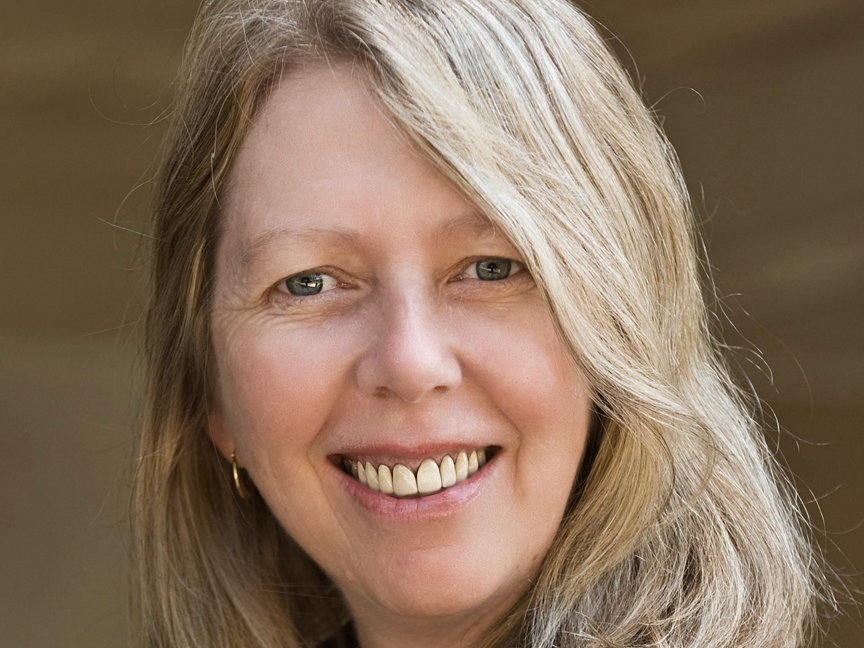
Prof. Deborah Brown
University of Queensland, Australia
partner
Deb is a Professor at the School of Historical and Philosophical Inquiry Faculty of Humanities, Arts and Social Science at the University of Queensland; and is the director of UQ’s Critical Thinking Project. She has developed and applied many pedagogical frameworks and is curious about where curiosity and critical thinking converge.
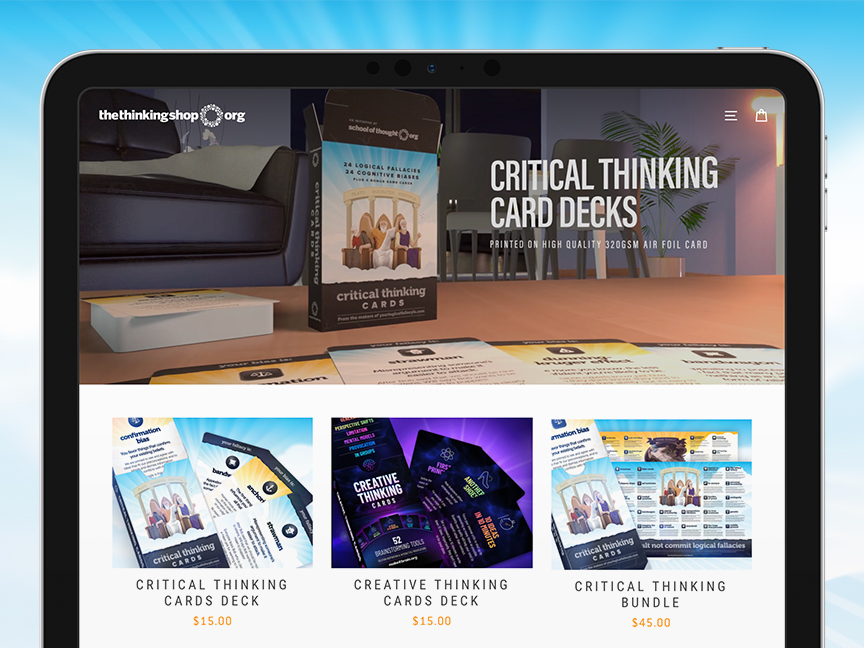
The Thinking Shop
Free downloads and critical thinking merch
resource
You can download all of the School of Thought’s Creative Commons critical thinking resources for free, or buy some merchandise to support the non profit’s efforts to make the world a thinkier place. There’s a range of posters including fallacies and biases, and the deck of Critical Thinking Cards is the most popular product.
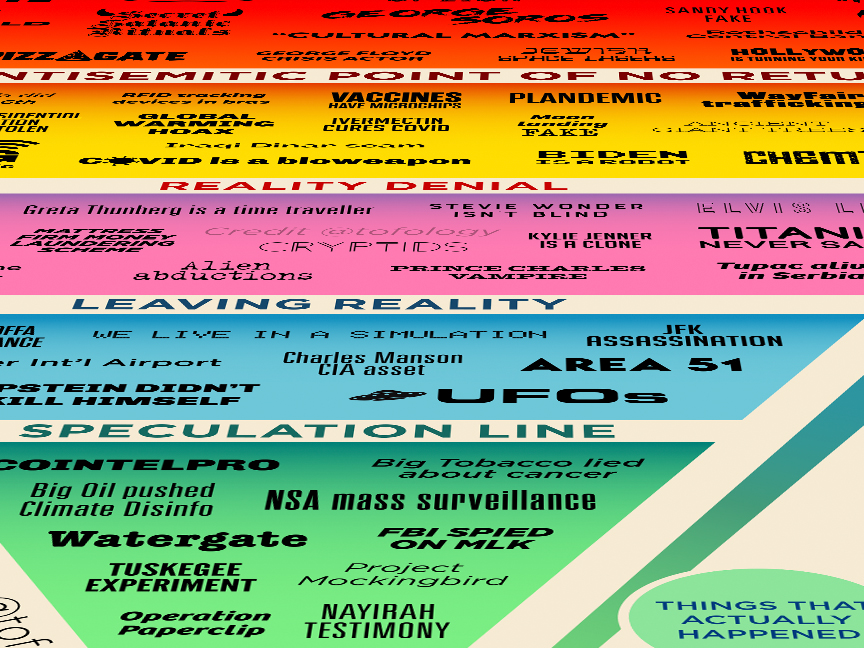
Conspiracy Chart
Chart conspiracies from actual to utterly insane
resource
This fantastic infographic is interactive such that you can click on any conspiracy theory to see more information about it. It acknowledges actual conspiracies that have occurred, then moves to ‘we have questions’ and on to increasingly divorced from reality categories of credibility and potential harm.

Scout Mindset TEDx
Why you think you’re right – even if you’re wrong
resource
What if instead of trying to change beliefs, we tried to change mindsets? By reframing, we can move from a default ‘soldier mindset’ in which we’re biased to defend our beliefs, to a ‘scout mindset’ in which we enter a mode of truth-seeking rationality and a willingness to see things as they really are.

Dr. Peter Ellerton
University of Queensland, Australia
partner
Peter is a senior lecturer in philosophy at the University of Queensland, Curriculum Director of the Critical Thinking Project, syllabus designer, and Fellow of the Rationalist Society of Australia. His areas of focus include Public Reasoning, Science Communication, Argumentation and Critical Thinking in education.

Politifact
Fact-checking politicians’ claims
resource
Politifact uses its proprietary ‘truth-o-meter’ to fact-check claims made by elected representatives in the United States of America. Ranging from ‘True’ through to ‘Pants on fire’, each fact-checking investigation is provided as a public service for free, with sources made available for anyone to verify.

Spencer Greenberg
Founder of Sparkwave and Clearer Thinking
partner
Spencer is a mathematician specializing in machine learning, and an entrepreneur in social science. He founded Spark Wave - a startup foundry dedicated to social good. His focus is on creating practical tools with empirical rigor around topic areas like psychology and critical thinking.

You Are Not So Smart
By David McRaney
book
Every decision we make, every thought we have, and every emotion we feel comes with a story we tell ourselves to explain them. But often these stories aren’t true. Each short chapter—covering topics such as Learned Helplessness, Selling Out, and the Illusion of Transparency—is like a psychology course with all the boring parts taken out.
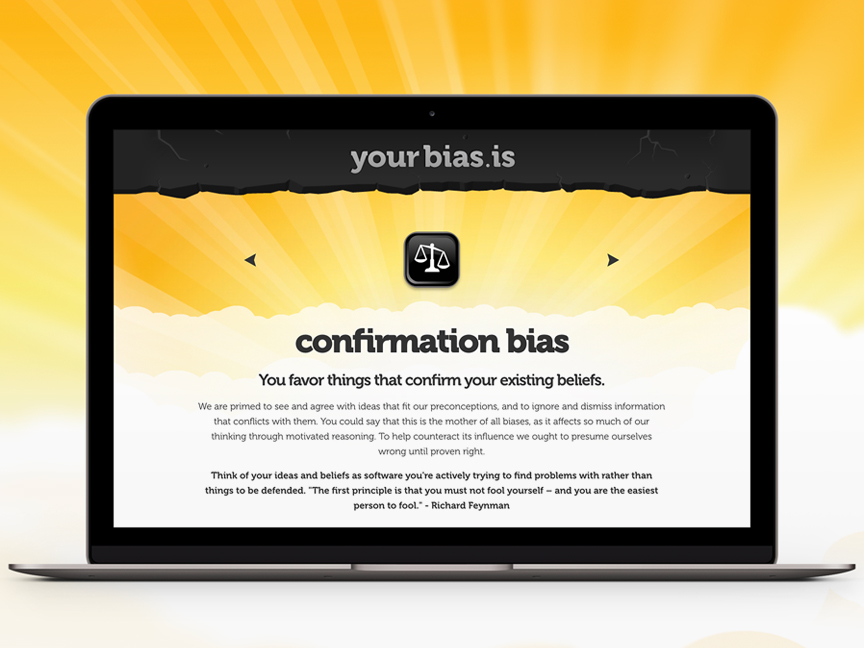
Yourbias.is
Explore common cognitive biases
resource
Cognitive biases make our judgments irrational. We have evolved to use shortcuts in our thinking, which are often useful, but a bias means there’s a kind of misfiring going on causing us to lose objectivity. This website has been designed to help us identify and mitigate some of the most common biases stuffing up our thinking.
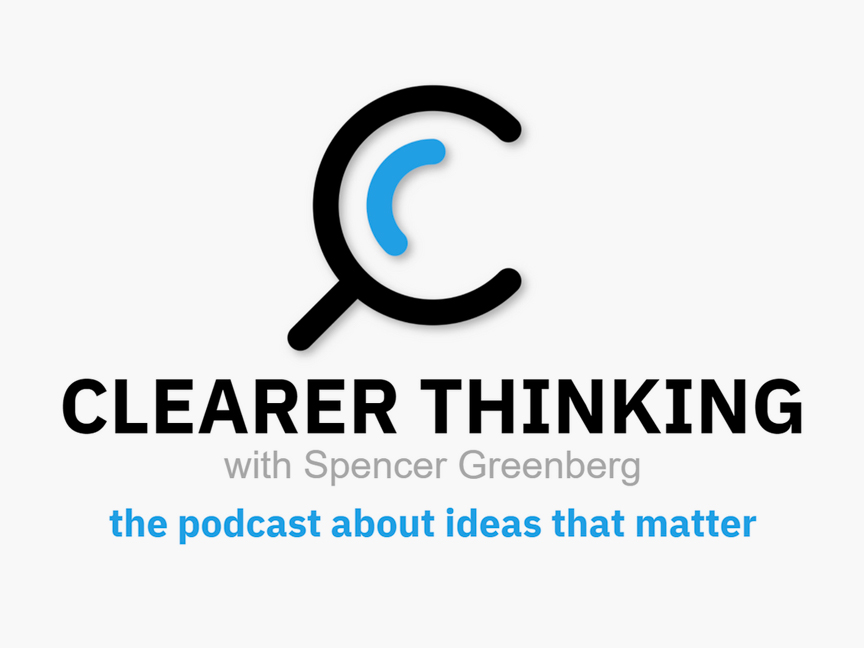
Clearer Thinking podcast
Exploring ideas that matter
resource
Join polymath entrepreneur Spencer Greenberg for a podcast that explores everything from behavior change, to philosophy, science, artificial intelligence, math, economics, mental health, technology and more. Join guests such as Peter Singer, Reid Hoffman, and Martha Nussbaum for riveting conversations.
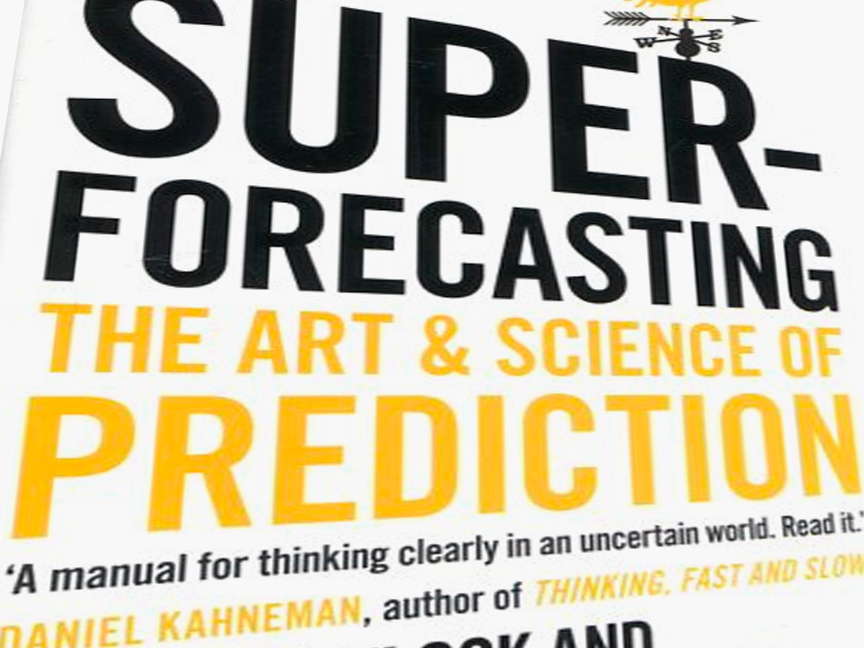
Superforecasting
By Philip E. Tetlock & Dan Gardner
book
Superforecasting offers a masterwork on prediction, drawing on decades of research and the results of a massive, government-funded forecasting tournament. It provides the first demonstrably effective way to improve our ability to predict the future—whether in business, finance, politics, international affairs, or daily life.
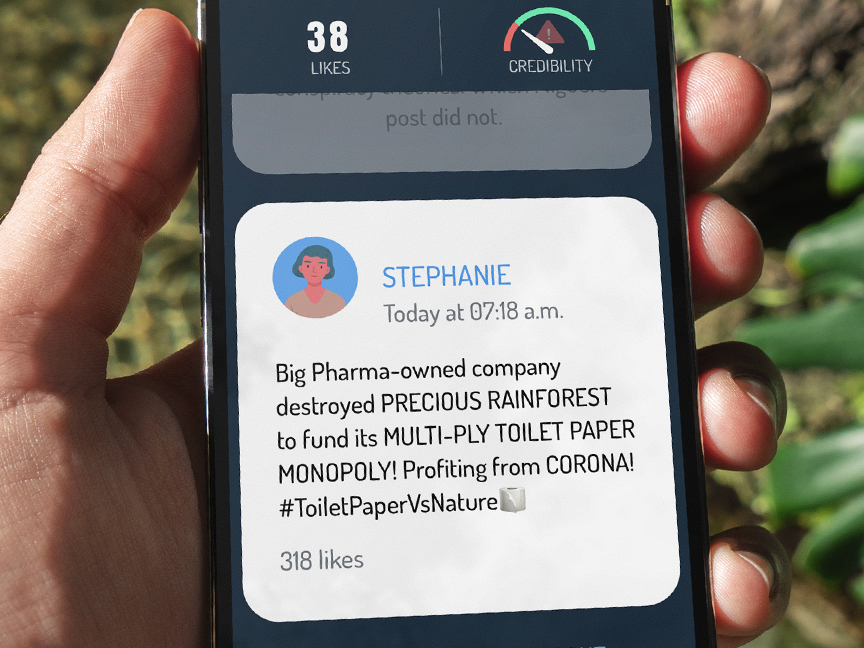
Go Viral Game
Inoculate yourself from COVID-19 misinformation
resource
In this 5 minute game you descend into an online echo chamber where misinformation proliferates widely, all the while learning about some of the most common strategies used to spread false and misleading information about the virus. This game was proven to help improve people’s ability to spot misinformation.
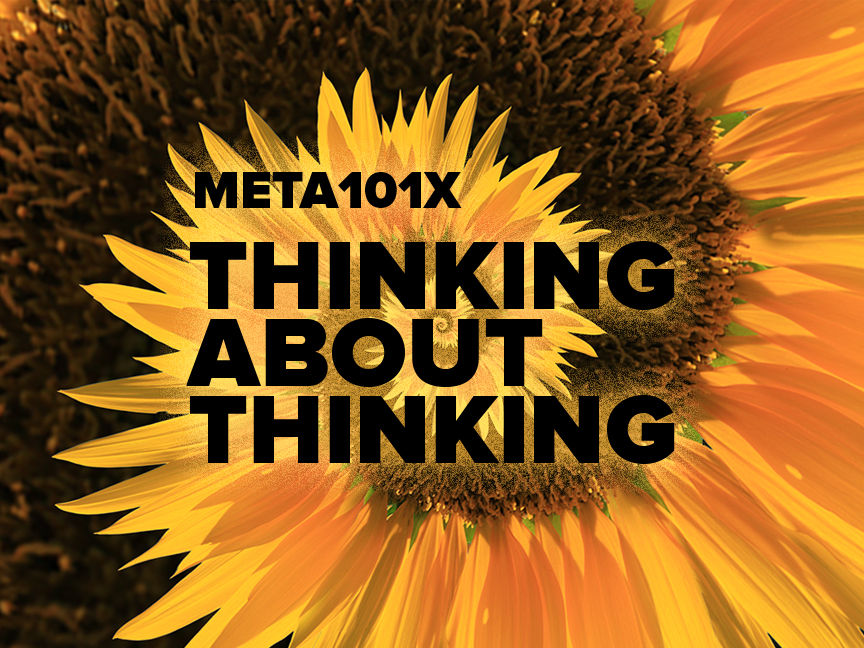
edX Critical Thinking Course
Free online course on philosophy and critical thinking
resource
Created by the University of Queensland’s Critical Thinking Project, this free online course provides both a curious theoretical understanding of the philosophical precepts that allow us to think clearly, as well as practical tools and frameworks with which to reason, interrogate, understand, and communicate with critical rigor.
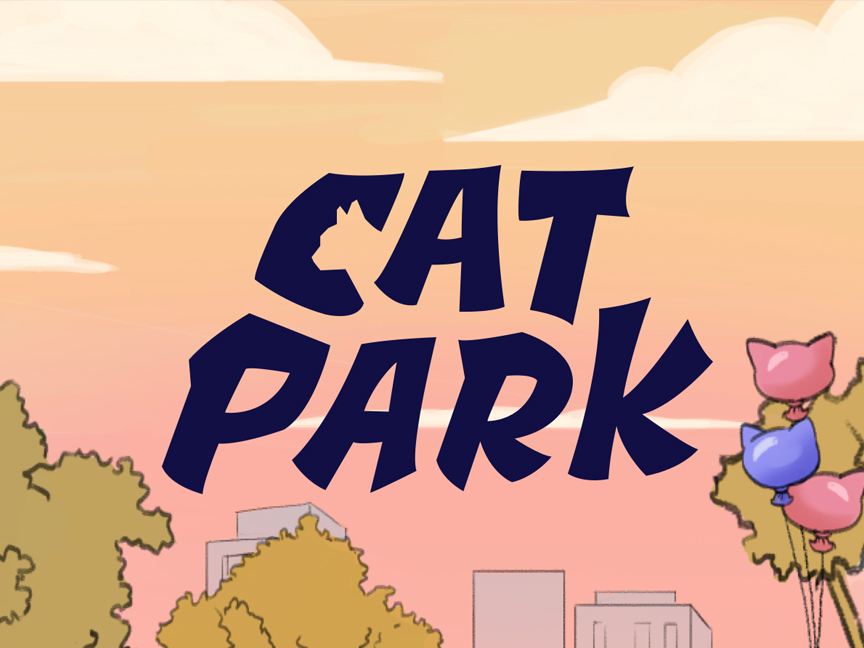
Cat Park Game
Inoculate yourself against disinformation campaigns
resource
Cat Park is based on “active inoculation” theory. Much as vaccinations work by exposing subjects to an innocuous strain of a virus in order to trigger an immune response, empirical studies indicate that the controlled experience of disinformation through a game can build cognitive resistance to disinformation in the real world.

Kialo
Visualized debates to foster critical reasoning
resource
Kialo is an interactive way to both engage in online debates, as well as understand how complex issues can be multi-faceted. Each fork in the logic tree shows arguments for and against particular claims, with the community voting for the strength of each nested argument. The result is a fantastic interactive, visual map of the issue.
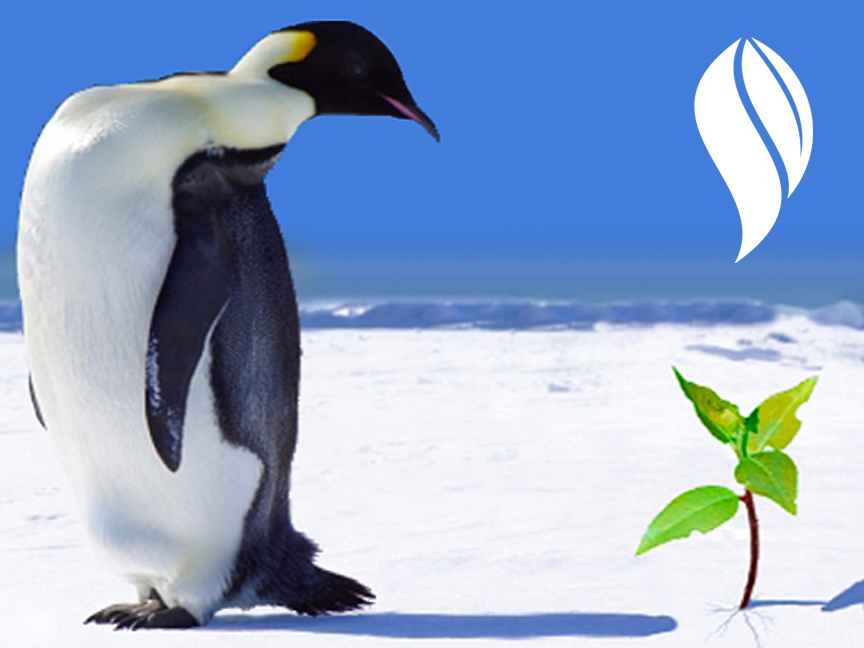
Skeptical Science
The science and arguments of global warming skepticism
resource
Global warming is real and human-caused. Under the guise of climate "skepticism", we are bombarded with misinformation that casts doubt on the reality of human-caused global warming. This website gets skeptical about global warming "skepticism" providing clear refutations of common spurious arguments.
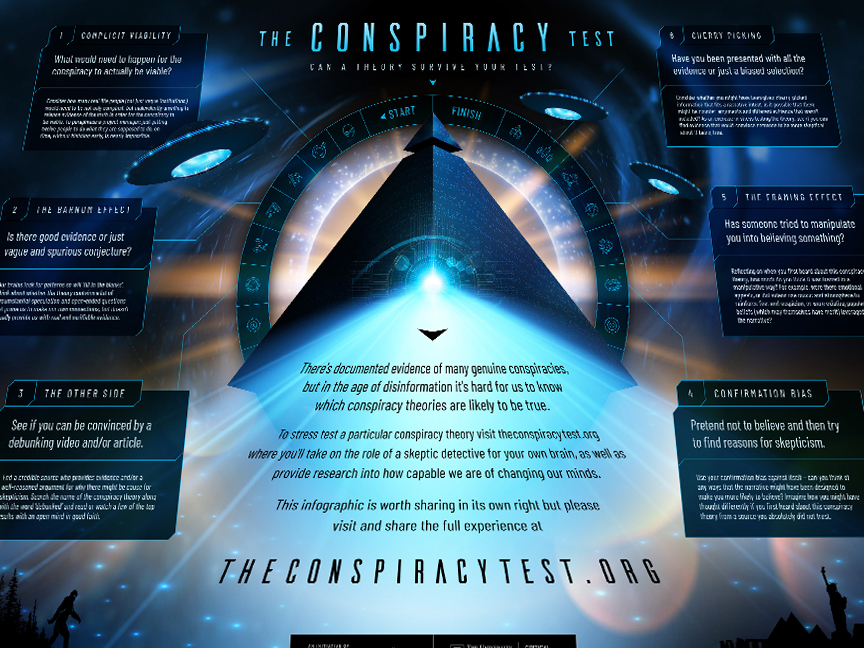
Conspiracy Test Infographic
A free printable poster and shareable infographic
resource
This Conspiracy Test poster and infographic is available as a high resolution printable PDF and jpg file. It’s published under a Creative Commons 4.0 CC-BY-NC Attribution and Non-commercial license, and provides six skeptical steps to spur critical consideration of conspiracy theories (without being all smug and patronizing about things).
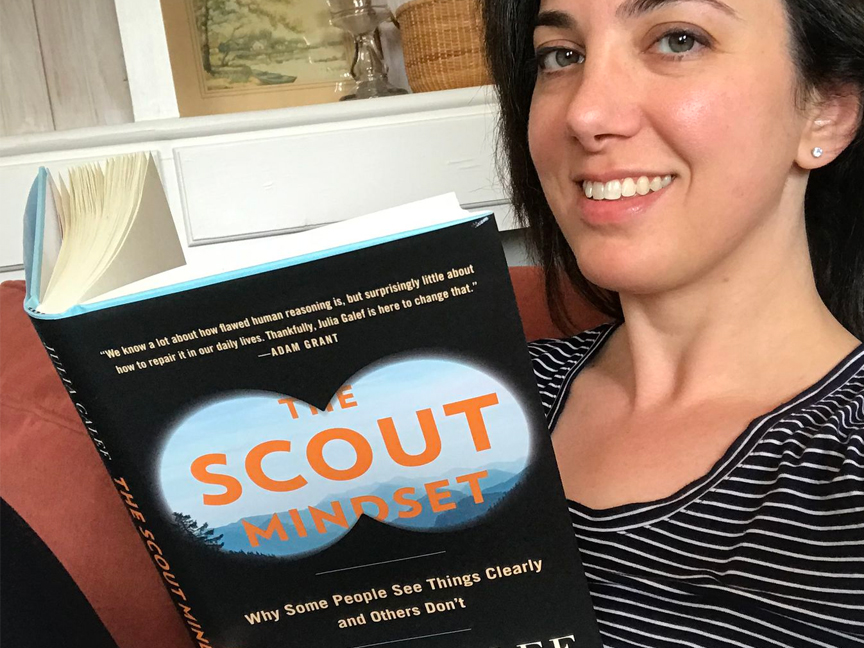
The Scout Mindset
By Julia Galef
book
Julia heped to popularize the rationalist movement by making otherwise arcane and dense subject matter easily accessible and engaging (but without being patronizing). In this book she lays out a simple, compelling, and highly actionable framework for how to foster intellectual humility and a truth-seeking, honest way of being in the world.

Cranky Uncle
Prebunk climate denial misinformation
resource
This mobile app helps students to ‘prebunk’ various forms of climate denial misinformation by with a gamified quiz experience. Learn to identify the fallacies of logic and rhetorical tricks used to manipulate opinion with a fun interactive format that challenges kids aged 10 - 18 to think critically and independently.
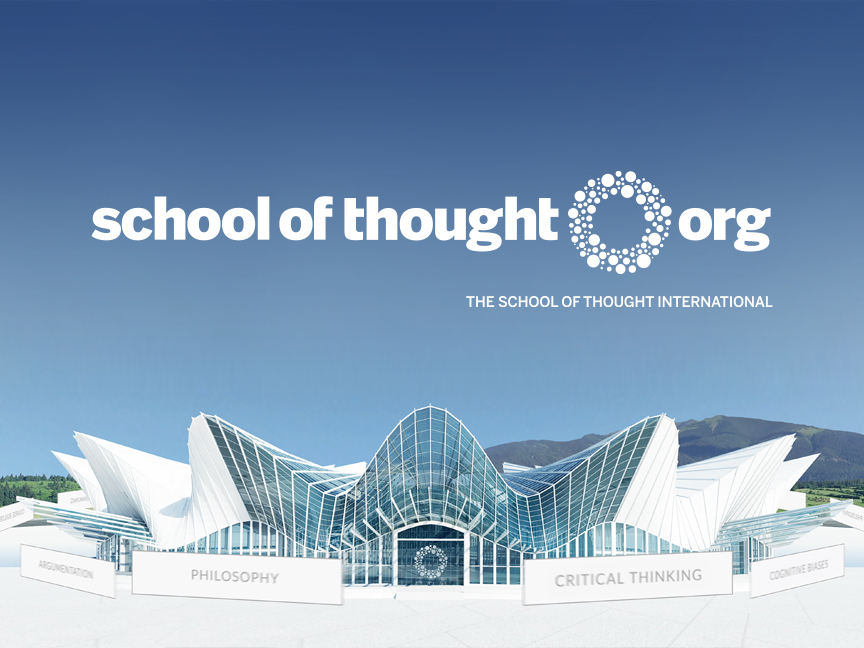
The School of Thought
Free creative commons resources on critical thinking
partner
The School of Thought International is a 501c3 non profit dedicated to popularizing critical thinking, reason, and understanding. So far their free resources have reached over 30 million people in 7 languages, and are being used in Fortune 500 companies such as Apple and Google, and universities such as Harvard and Stanford.
PRESS RELEASE:
Most Americans view conspiracy theories as dangerous, despite nearly 50% believing alien visits were covered up by the government
Overwhelmingly majority believe misinformation an existential threat to society; with AI and social media viewed as substantial areas of concern heading into the election.
View media kitJoin The Critical Thinking Alliance to fight misinformation and promote science and reason.
Receive free critical thinking resources, topical recommendations, and join a global community of people dedicated to fighting misinformation and promoting scientific understanding and rationality.
[JOIN]